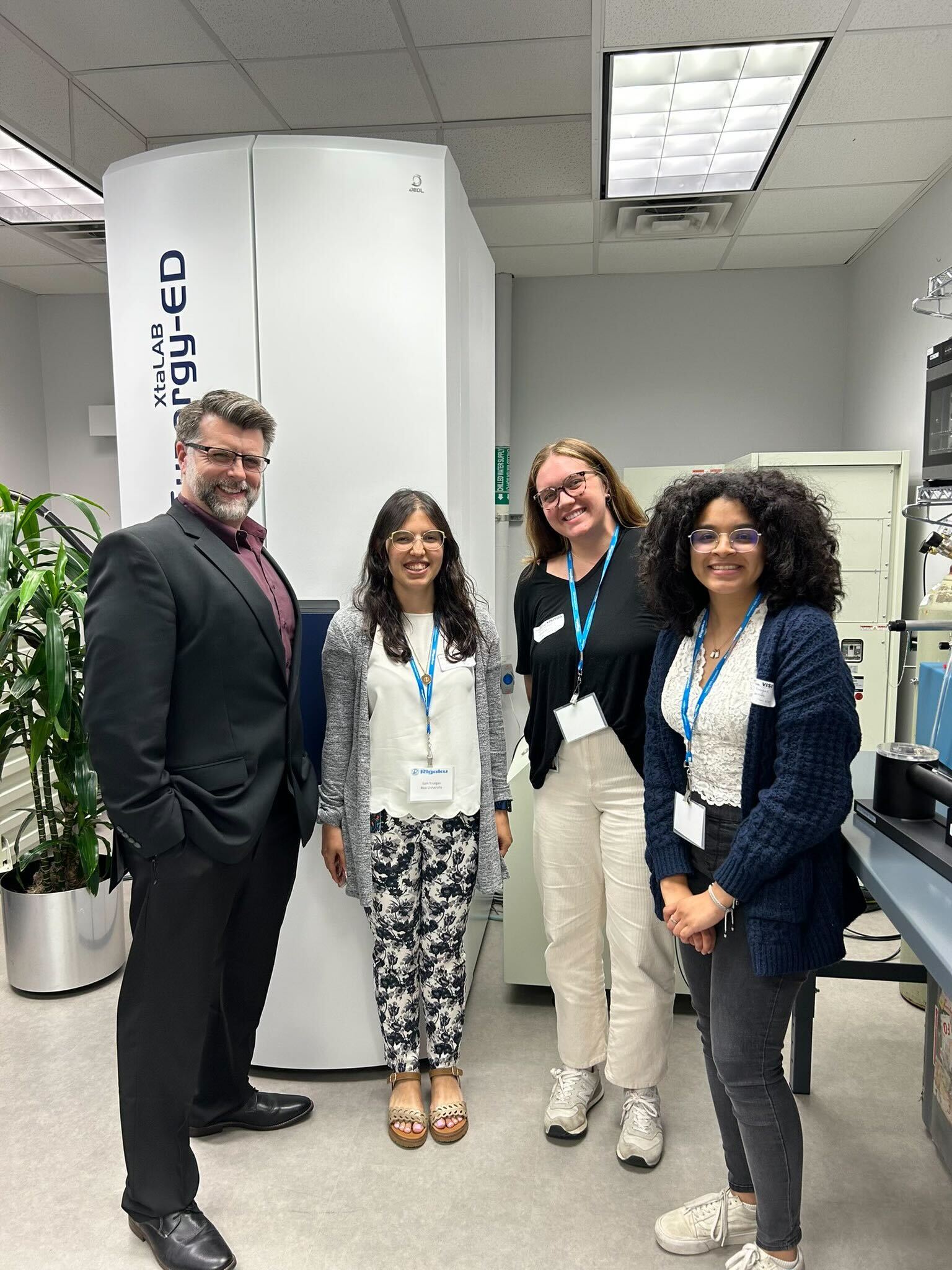Before applying to graduate school, you ensure you do your research on the faculty and their work at the institution you’re interested in; and if you hear back, you’ll most likely get to meet with those faculty members during your visiting weekend. However, I met someone unexpected during visitation weekend that completely changed how I envisioned my grad school journey going.
In February 2022, I was at Rice for the Chemistry Department’s Recruitment weekend and I already had an idea of what professors I was going to be talking to. When I got my schedule of who I was going to meet with, I saw a name I didn’t recognize. At the time I was interested in exploring all different types of chemistry and was not set on one, so I kept a very open mind throughout the weekend. I met with Prof. Samantha Yruegas in a barely furnished office, at the time she was still a postdoc at Princeton. We talked about our research interests for a bit and I told her that her work sounded very cool and that my past research experience and interests were better aligned with another lab, but I was still open to exploring all kinds of chemistry. As the weekend went on, we chatted a lot and I felt that I got along with her well, so I decided to stay in contact with her until the next academic year started so I could do a rotation with her.
Come August 2022, I was ready to start graduate school. Rotations done in the chemistry department typically involve shadowing or working with a senior student, or working on a mini project. My rotation consisted of fixing up the lab we inherited from another faculty member and setting up our brand new lab space. Although rotations only last two weeks, I wanted to keep working in this lab because I was interested in learning more about this new field of chemistry I was getting myself into and wanted to keep helping out with the lab set up. In November, I was officially part of the Yruegas lab along with another student (my favorite labmate)! We still had much to do in terms of set up. For the first few months, it almost felt like we were doing garage chemistry, but by the following February, the lab was about 90% done.
My group does a lot of synthetic work, especially air-free chemistry, so the learning curve was high for me but, in the end, it was worth it. My PI was there to help us learn the ropes and would constantly check up on us. I learned how to work on a Schlenk line and in a glovebox, as well as doing generic bench work. Now that my labmate and I are considered senior students, we have become the keepers of knowledge and now we teach new students just as our PI taught us.
What I learned
Joining a new lab can be very beneficial, especially if you are planning on becoming an academic with their own lab. You learn a lot about lab design and setting up all kinds of machines, as well as fixing them. We are not yet a self-sustainable lab and rely on our PI and senior graduate student, which is why we have realized how important the transfer of knowledge and open communication is between all members of the lab. If you are joining a young lab, you must be incredibly open-minded and ready to cooperate in any way you can to make the lab successful.
Some tips for choosing a lab
When choosing a lab you want to be in for your M.S. or Ph.D., there are a few factors you have to consider:
- Your research interests: You want to ensure you choose a lab that does work that you will enjoy during your time in graduate school. Looking at faculty’s bios, websites, and publications can give you a good idea if the research they do is a right fit for you. Although I switched fields completely, I was sure that I could enjoy the work that I do now by talking to the PI.
- The PI: Everyone has different mentoring styles, and recognizing your own is crucial to knowing if you and your PI will get along well. The best way to gauge if you and a potential PI will have a good relationship during graduate school is talking to them and being clear about your expectations and understanding theirs as well. Additionally, talking to the graduate students in the lab will give you a good idea if the lab dynamic is a right fit for you.
- The lab members: During your visiting weekend or during your rotation, you should do your best to socialize with as many graduate students as possible. They have the best idea of how the lab operates and what graduate life is. This is important not only for choosing the lab, but also the institution you plan to spend the next few years in.
About the author:
Dinora Rodriguez is from Houston, TX, where she got her B.S. in Chemistry and Physics at the University of St. Thomas, and is a current Ph.D. student in Chemistry. Read more.
Further Reading:
Why I Chose Rice for Graduate School:
Expanding Horizons Fellowship - Coffee Production in Colombia

